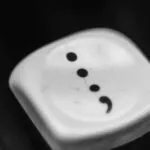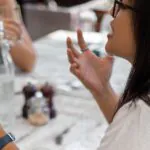
When to Use Possessive Apostrophes
Apostrophes are one of the most commonly misused forms of punctuation. As a proofreader or editor, you’ll need to catch apostrophe errors in your client’s work.
There are two main uses of apostrophes: to indicate possession and to create a contraction. In this post, we’ll be focusing on the former.
Read on to learn the rules for using possessive apostrophes.
Forming Possessive Nouns
Possessive apostrophes are used to indicate that something belongs to or is connected to something else. Generally speaking, using an apostrophe to form a possessive noun is pretty simple.
- If the noun involved is singular, add an apostrophe and an “s” to the end of the word:
The lion’s mane (the mane belonging to the lion)
The house’s door (the door attached to the house)
The lobster’s tank (the tank containing the lobster)
- If the noun involved is plural and ends in “s,” add only an apostrophe:
The lions’ manes (the manes belonging to the lions)
The houses’ doors (the doors attached to the houses)
The lobsters’ tank (the tank containing the lobsters)
However, as with most aspects of the English language, using possessive apostrophes isn’t always so easy. If a plural noun doesn’t end in “s,” for example, both an apostrophe and an “s” are needed:
The women’s football team.
The people’s vote.
And proper nouns that end in “s” have their own set of rules, which we’ll discuss next.
Possessive Apostrophes and Proper Nouns
Different style guides have different rules on how to form possessives with proper nouns that end in “s.”
For example, some guides advise adding only an apostrophe to singular proper nouns ending in “s”:
Iris’ homework.
Dickens’ works of literature.
Copernicus’ model of the universe.
Other style guides suggest adding an apostrophe and an additional “s”:
Iris’s homework.
Dickens’s works of literature.
Copernicus’s model of the universe.
This means you’ll need to know which style guide your client is following to properly check their apostrophe usage. If they aren’t following a specific style guide, simply make sure their possessive apostrophe usage is consistent.
Whichever style guide your client is using, though, for plural proper nouns (such as surnames referring to a whole family), they should only add an apostrophe – with no additional “s”:
The Ferris’ Christmas Party
The Smiths’ new house.
Possessive Apostrophes and Possessive Pronouns
Many people, especially ESL writers, get tripped up by possessive pronouns when it comes to using possessive apostrophes. Unlike with other types of nouns, it’s always incorrect to add an apostrophe to such pronouns:
The idea was her’s. ✘
The idea was hers. ✔
That painting is their’s. ✘
That painting is theirs. ✔
In fact, adding an apostrophe to a possessive pronoun can form a contraction, which will completely change the meaning of the sentence:
The rat hated its cage. (The rat hated the cage belonging to it.) ✔
The rat hated it’s cage. (The rat hated it is cage.) ✘
So, make sure you check your client’s use of possessive pronouns and remove any unnecessary apostrophes.
Forming Joint Possession
Using possessive apostrophes with multiple nouns can confuse writers. If something belongs to more than one person or thing, it’s only the final noun that should be made possessive:
Mom and dad’s car broke down. (The single car belonging to both mom and dad broke down.)
Kate, Jane, and Sophie’s room is haunted. (The single room belonging to both Kate, Jane, and Sophie is haunted.)
If separate things belong to different owners, all the nouns must be made possessive:
Mom’s and dad’s cars broke down. (Two cars, one belonging to mom and one belonging to dad, broke down.)
Kate’s, Jane’s, and Sophie’s rooms are haunted. (Three rooms, one belonging to Kate, one to Jane, and one to Sophie, are haunted.)
Becoming A Proofreader
Want to become a pro at spotting punctuation errors? Our Becoming A Proofreader course has an entire module on punctuation mistakes and how to fix them, so you’ll be an apostrophe expert in no time. Sign up for a free trial!









Leave a Comment
Your email address will not be published.